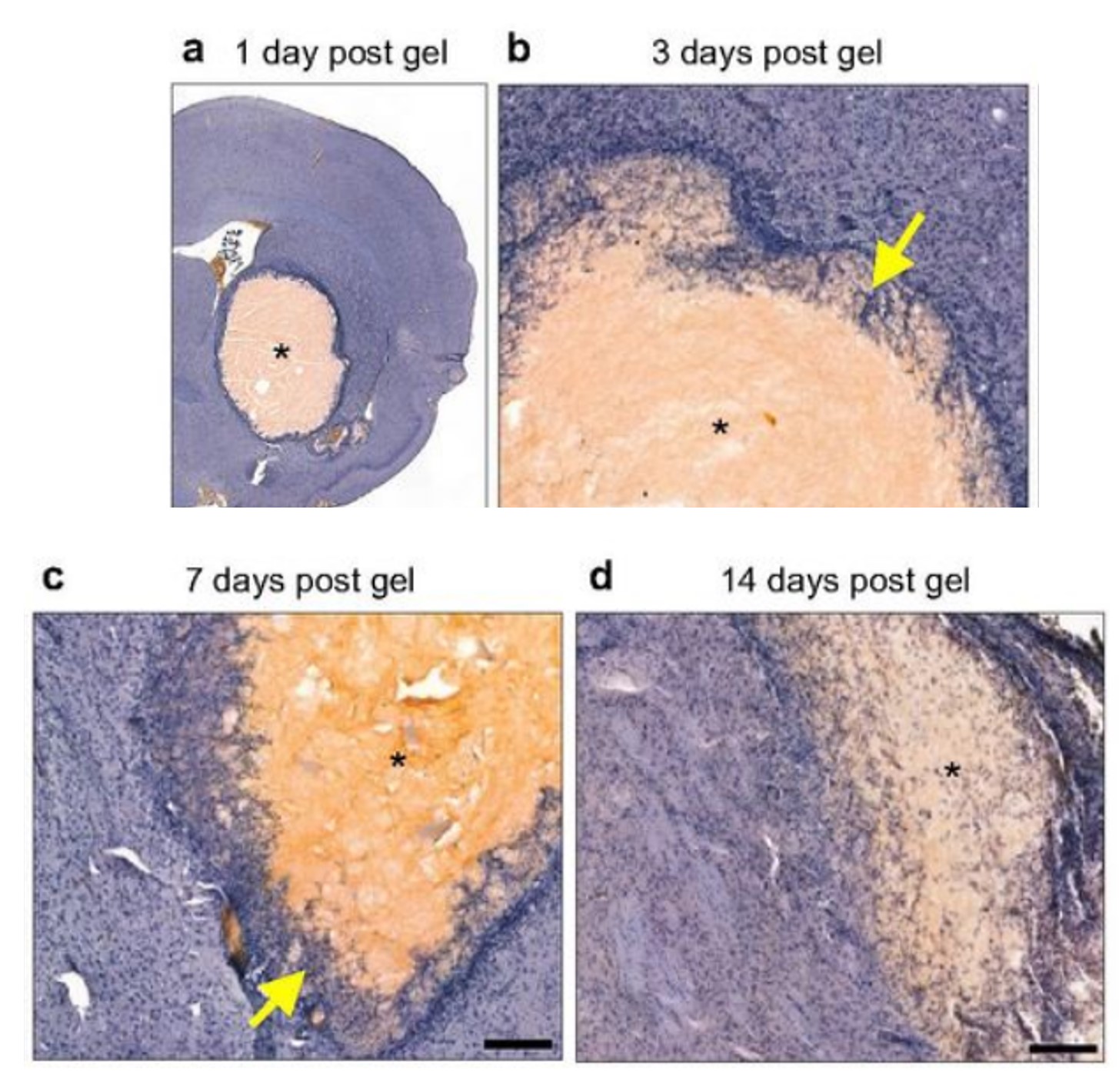Highlighted Publication
Intracerebral Administration of a Novel Self-Assembling Peptide Hydrogel Is Safe and Supports Cell Proliferation in Experimental Intracerebral Haemorrhage

Abstract
Intracerebral haemorrhage (ICH) is the deadliest form of stroke, but current treatment options are limited, meaning ICH survivors are often left with life-changing disabilities. The significant unmet clinical need and socioeconomic burden of ICH mean novel regenerative medicine approaches are gaining interest. To facilitate the regeneration of the ICH lesion, injectable biomimetic hydrogels are proposed as both scaffolds for endogenous repair and delivery platforms for pro-regenerative therapies. In this paper, the objective was to explore whether injection of a novel self-assembling peptide hydrogel (SAPH) Alpha2 was feasible, safe and could stimulate brain tissue regeneration, in a collagenase-induced ICH model in rats. Alpha2 was administered intracerebrally at 7 days post ICH and functional outcome measures, histological markers of damage and repair and RNA-sequencing were investigated for up to 8 weeks. The hydrogel Alpha2 was safe, well-tolerated and was retained in the lesion for several weeks, where it allowed infiltration of host cells. The hydrogel had a largely neutral effect on functional outcomes and expression of angiogenic and neurogenic markers but led to increased numbers of proliferating cells. RNAseq and pathway analysis showed that ICH altered genes related to inflammatory and phagocytic pathways, and these changes were also observed after administration of hydrogel. Overall, the results show that the novel hydrogel was safe when injected intracerebrally and had no negative effects on functional outcomes but increased cell proliferation. To elicit a regenerative effect, future studies could use a functionalised hydrogel or combine it with an adjunct therapy.

